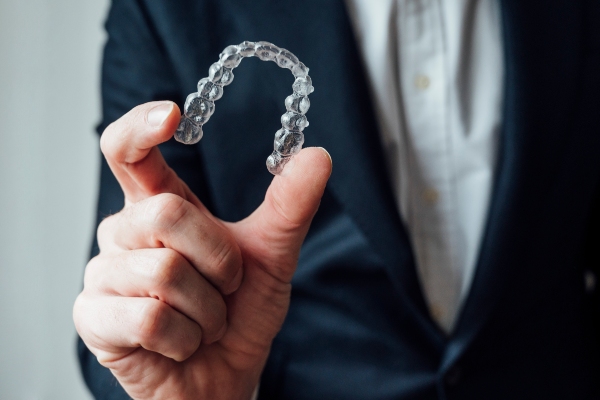 There are several myths and misconceptions about orthodontics. This is the process of correcting teeth alignment issues using appliances like clear alignments and metal braces. Treatment with orthodontics sometimes also leads to improvements in a person’s facial structure and appearance.
There are several myths and misconceptions about orthodontics. This is the process of correcting teeth alignment issues using appliances like clear alignments and metal braces. Treatment with orthodontics sometimes also leads to improvements in a person’s facial structure and appearance.
Misaligned teeth can ruin how a smile looks and can also increase the risk of issues like tooth decay and gum disease. A person's teeth and jaw joints can also become damaged as a result of stress caused by a bad bite.
Disproving four myths about treatment with orthodontics
Here are a few myths that are often spread about orthodontics treatment.
1. A general dentist cannot administer orthodontics
This is false. A general dentist has the training and experience needed to treat a wide range of orthodontic issues. They are qualified to diagnose orthodontic issues and to install appliances to fix them, like braces and clear aligners. A dentist can also help patients deal with issues that can come up during treatment, like tooth decay due to braces or another device getting in the way of oral hygiene.
2. Extractions are not compulsory
For years, it was a common practice for dentists to remove teeth before orthodontic treatment, even when the patient’s teeth were not crowded. Extracting a tooth is a quick way to make more space on a person’s jaw so their remaining teeth can move toward an improved alignment.
However, extracting teeth when not necessary can have side effects, like bone loss in the jaw. Thanks to many advances made in orthodontics, extractions are rarely performed nowadays before orthodontic treatments.
3. Children are not eligible for treatment
That is simply not true. Dentists recommend taking your child in for their first orthodontic checkup by the time they reach the age of 7. The ideal age for improving teeth alignment issues is around the ages of 9 to 14. At this stage, the patient’s jaw and facial structures are still developing, making it easier to manipulate them. Addressing misaligned teeth early on also helps correct potential alignment problems that could develop in the future.
4. Clear aligners can be used to fix any issue
While most people would prefer straightening their teeth with clear aligners due to the discretion and increased comfort that they can provide, they are not always an option. The effectiveness of clear aligners has expanded over the years as the technology has improved, but it is still not an effective way to fix misalignment caused by jaw positioning. Clear aligners work best when the patient’s bad bite is caused by the positioning of their teeth. Issues caused by poor jaw positioning typically require the use of braces.
Get straighter teeth
Ready for a straighter smile? Call or visit our Minnetonka clinic to learn more about the process. Our dentist will evaluate your teeth and educate you about your best options.
Request an appointment or call Anchored Orthodontics at 612-200-0020 for an appointment in our Minnetonka office.
Related Posts
Orthodontics typically involves wearing oral appliances like braces or clear aligners in order to straighten teeth. These devices work by constantly pushing on the wearer’s teeth, moving them to more desirable positions over time. Teeth misalignment can lead to a less aesthetically pleasing smile and a variety of oral issues, like gum disease. Getting appropriate…
Every person has unique reasons for seeking orthodontics. Some seek treatment to enhance the way that their smile looks, while others might want to address more serious issues, like not being able to speak properly due to teeth misalignment. Dentists often recommend orthodontics if they notice abnormalities like poor teeth alignment or a lack of…
Orthodontics is a field of dentistry that improves the function and appearance of the teeth and/or jaws. In most cases, orthodontics uses gentle, constant pressure to reposition the teeth and the structures that support said teeth.If you are thinking about improving your smile with orthodontic treatment, keep reading. This guide is an overview of the…





